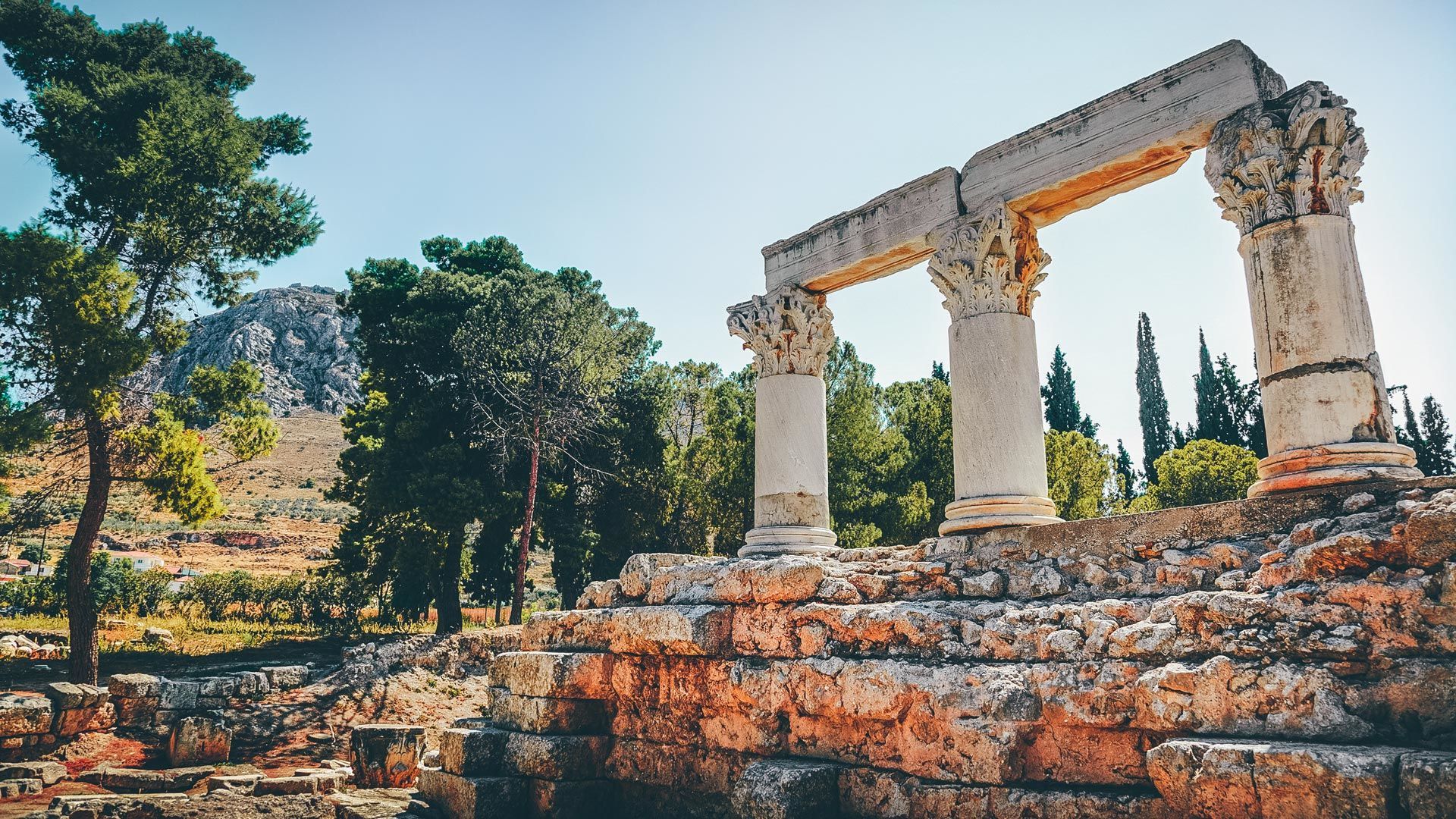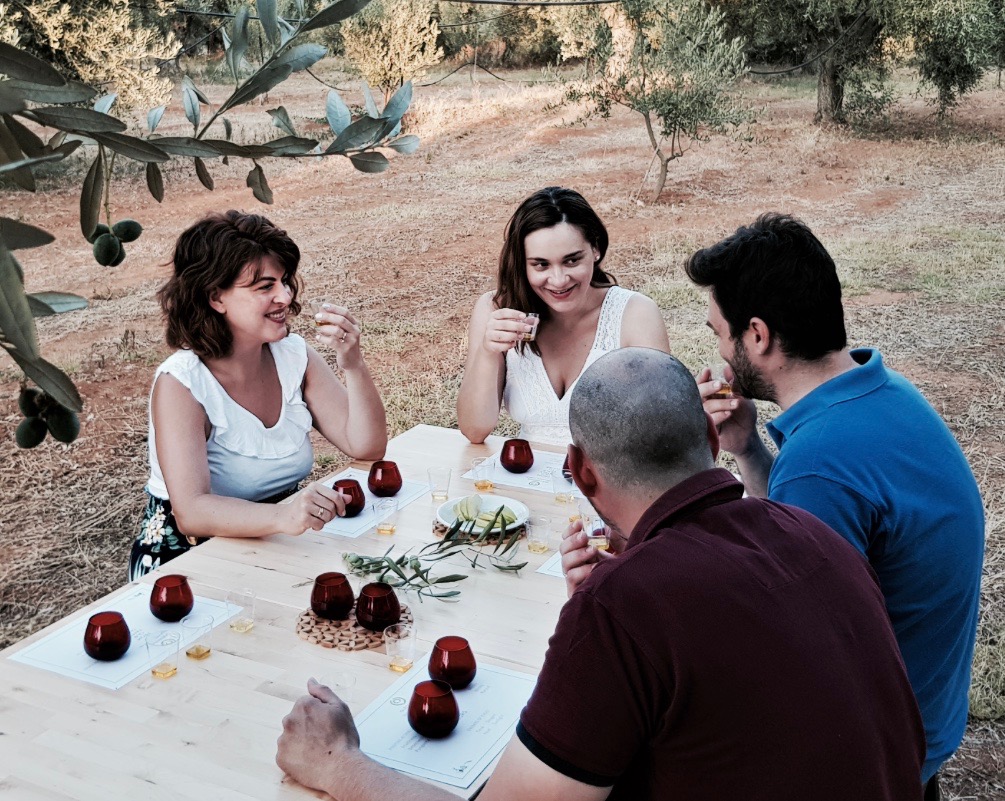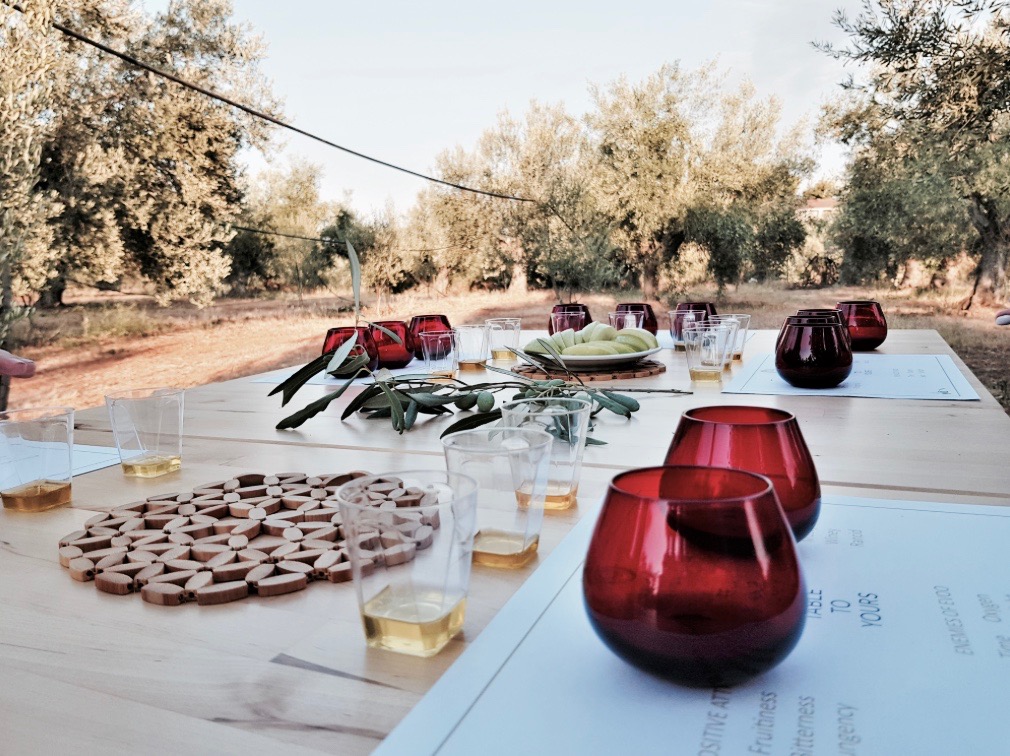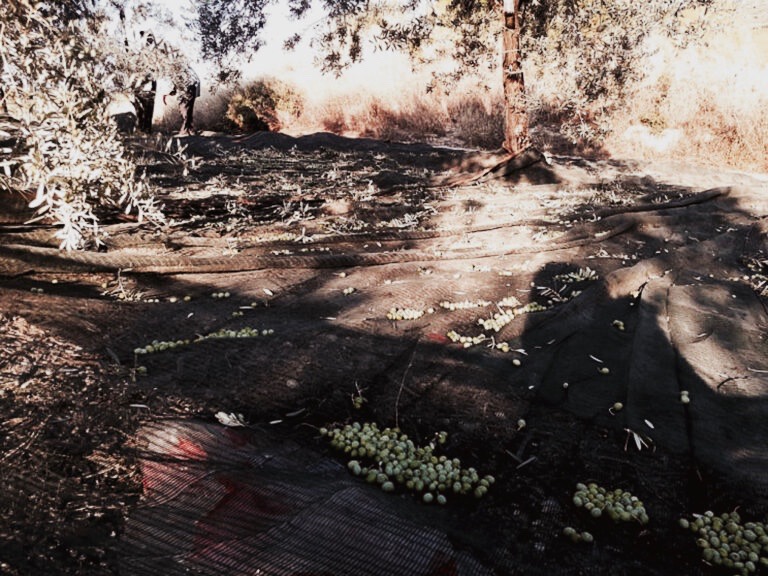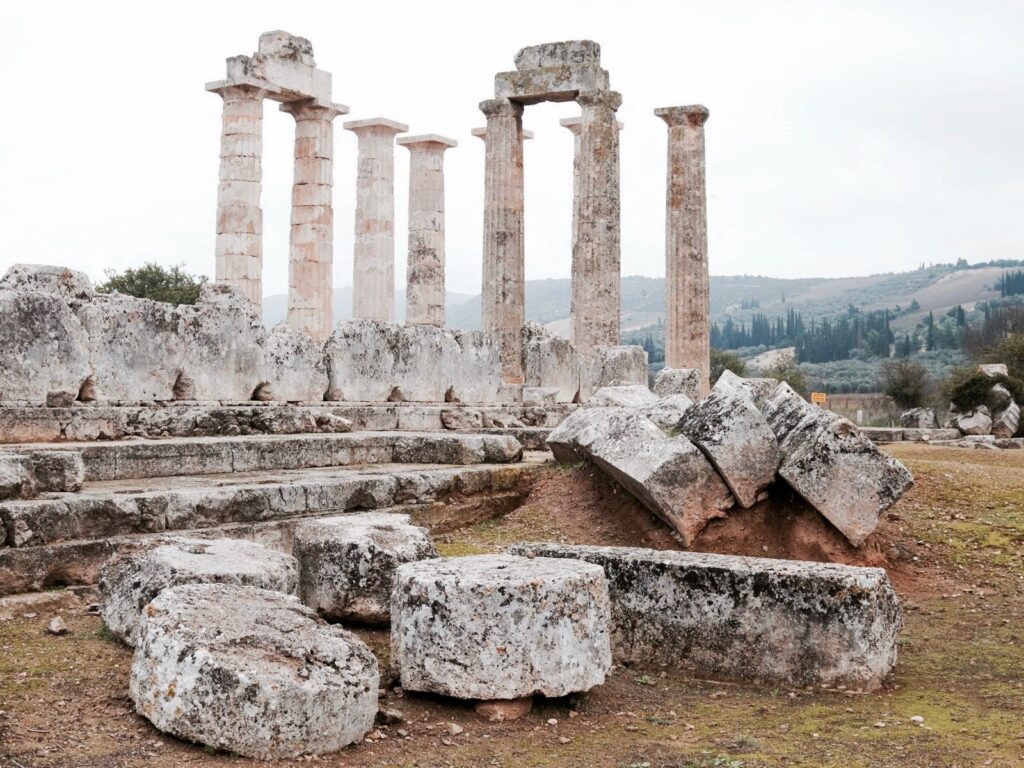When visiting the Corinthian Gulf, we suggest you make time for a tour of OLEOSOPHIA Olive Grove, where you have the opportunity of walking through an award-winning olive grove, exploring the olive tree cultivation, and getting a better understanding of what makes the Greek olive tree so important.
Located only one hour away from Athens, OLEOSOPHIA’s tour brings together the culture, history, myths, and legends of the olive tree as well as agricultural practices and the role it plays in today’s world. Visitors get to see the olive trees of the Manaki variety up close – the variety that is characteristic of the location that produces the award-winning mono-varietal Extra Virgin Olive Oil.
IN+SIGHTS GREECE recently spoke with founder and Olive Oil Sommelier Marianna Devetzoglou about this wonderful experience and other cultural and historical sites at the Gulf of Corinth.
Tell us about OLEOSOPHIA’s olive oil tastings?
Olive oil plays an integral role in Greek cuisine. But not all olive oils are good or healthy. Knowing how to understand, appreciate and select the right olive oil is very important, in order to enjoy the health benefits and of course, enhance your cooking. At our olive oil tasting, visitors will learn about the basic principles of olive oil tasting, the importance of sensory analysis, how to taste and identify positive and negative characteristics of olive oil. They will also have the opportunity to learn how to shop for the right olive oil, store and use it properly when preparing meals for their friends and family. Participating in an olive oil tasting is an experience that changes our life and the way we see olive oil and our health.
What can visitors learn about the benefits of olive oil and the Mediterranean diet?
Through our tours and tastings, we aim to communicate the value of the Mediterranean diet and lifestyle, with olive oil at its very core. Visitors will learn about the values of the Mediterranean diet, the importance of olive oil in its culture, history, gastronomy, and the great effects that high-quality olive oil can have on our body and mind. The tours and tastings are connected into one experience. We begin with a walk through the olive grove tour, discussing olive trees, their origins, and their value, talking about olive oil, its lifecycle, its characteristics, and quality categories. We complete our walking tour at a nice table setting where the olive oil tasting takes place. This is a well-rounded, informative, and fun experience that will create beautiful memories to take home with you!
When do the tours take place?
Our tours usually run from April to October, on a daily basis, with one to two sessions per day, based on our bookings. We take bookings in order to ensure a better quality of the experience, keeping groups at a small size (up to 8 people). In order to make your booking, you can either reach out to us to discuss your arrival dates and make your booking based on your schedule or you can book through TripAdvisor and Viator.
What makes your tour so special?
The simplicity and the real contact with us. Visitors get to discuss with us, learn about us, about our family, our extra virgin olive oil, and more! Visiting the olive grove and attending an olive oil tasting is the epitome of the farm-to-table or also known as farm-to-fork, a major strategy that is at the heart of the European Green Deal, aiming to make food systems fair, healthy, and environmentally friendly.
Tell us about the recent award you received at the Berlin Great Olive Oil Competition?
The Berlin Great Olive Oil Competition is an important competition and our participation was a success! We received the Silver Award for Quality with our OLEOSOPHIA Manaki Monovarietal First Harvest Extra Virgin Olive Oil and we are part of the Elite Olive Oils on a global level.
What’s the best season to visit the Corinth region?
The Corinth is wonderful to visit any time of the year with spring to autumn being the highlight. We are only one hour away from Athens so access is very quick and easy, making the experience even better. Visitors can see the Ancient Corinth, the Corinthian Canal, the agricultural activities, and experience our olive oil tasting – after all, the area is known for its olive oil production. For autumn visitors, it is also a great opportunity to experience cool temperatures and the harvest season.
A few of your favourite places in Corinth to eat and drink?
I love having lunch or dinner by the sea or up in the freshness of the mountain, so I would say the lovely taverna of Thealos in Assos for fine fish and the traditional EVIVA taverna in Vohaikos for meat. For a relaxed drink, head to the Bahama Café in Vrahati and I’m Going Bananas in Lehaio.
Local dishes/delicacies people should try?
A classic salad with Corinthian currants, Feta cheese, and the famous Agiorgitiko Nemean wine.
Best beaches around Corinth?
I would say Vrahati beach, Korfos beach, and the beautiful Folia tis Fokias beach.
Historical sites?
Ancient Corinth, the Ancient Theatre, Nemea, and right next to our village Kalentzi, there is the beautiful monastery Panton Chara (of all happiness), a historic chapel carved into the rock of Mount Fokas, and the Ancient Corinthian fortress.
What should visitors not miss when visiting Corinth?
The Corinthian Canal and our olive oil tour and tasting, of course, combined with a nice swim at one of the many beaches of the area.

